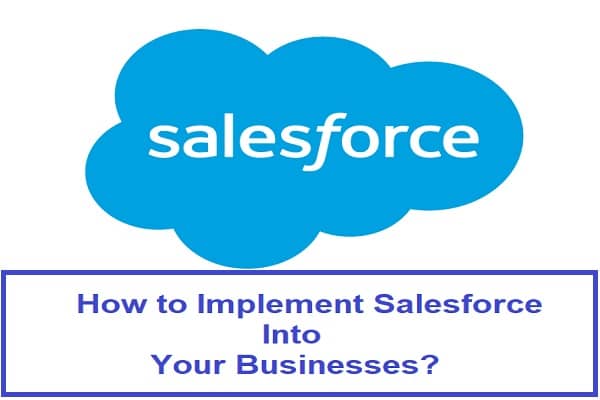Contents
If your organization has made the wise choice to turn to Salesforce for its CRM needs, you might be wondering where to begin, and how best to implement the process? Salesforce is one of the best customer relationship management tools on the market and can be a powerful system that gives your organization a competitive edge over others. When implementing Salesforce and introducing it to your staff, however, there are a few crucial steps that must be taken to ensure everyone starts on the proper path.
1. Have a project timeline for implementation
Make use of visual tools such as a Gantt chart to direct your implementation team towards a series of reasonably set benchmarks in the implementation process. You want to make sure that these are specific points that are spaced well enough to ensure they are not rushed and have been carefully considered. It is during this time that you should ensure that implementation will not conflict with other big projects or shortages in personnel, such as during a holiday break, and that the implementation process is not too delayed such as to cause an interruption in workflow.
2. Set implementation goals
Goals that are set during the formation of the implementation timeline should be progressive and set in a way that brings the majority of the staff onboard using Salesforce within a set period. It is unwise to attempt to implement the system on the entire workforce at once, as many might resist the change if it is abrupt. Rather, train various departments at different times and allow them to ease into the use of the system. Other goals might include defining how different departments will use the CRM system, how you will interact with clients, and at what point these various aspects of the system will be brought online.
3. Communicate with your Salesforce implementation consulting partner
Before any steps are taken in the implementation process, you should hire the best Salesforce consultant possible and have steady communication with an experienced implementation consultant, even if you think you do not need one. A registered Salesforce consultant not only has the proper training in effective implementation, but he will also be able to more quickly resolve any unexpected challenges that come up that were not foreseen.
4. Build and utilize an implementation team
The consultant is an important member of the implementation team, but he does not work alone. Your organization should have a system administrator and project manager in-house who will oversee the implementation project in such a way as to ensure the system is functioning properly for the goals set forth by the organization. If the project manager is not the team leader, then one should be designated who sets out the duties and goals for each member of the team and stage of implementation. There should also be a power user, someone who understands the technology will be using the system extensively and can assist other staff in their use of the system.
Also read: How Microlearning Can Boost Businesses
If you are part of an organization with a wide variety of customers, having a CRM system in place like Salesforce is a must. The system streamlines communication and operations and serves as a means of keeping track of crucial daily activities that facilitate better relationships with clients. Considering the advantages of Salesforce, the benefits are certainly worth the effort and cost.





